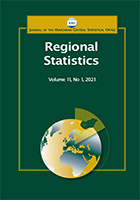Comparative study of labour market development in post-socialist Hungary and Azerbaijan since 1990
Comparative study of labour market development in post-socialist Hungary and Azerbaijan since 1990
Author(s): Vusal AhmadovSubject(s): Social Sciences, Economy, Geography, Regional studies
Published by: Központi Statisztikai Hivatal
Keywords: Azerbaijan; Hungary; labour markets; social security
Summary/Abstract: This study compares the labour market developments in Hungary and Azerbaijan since the early period of their transition away from socialism. It analyses aggregate and segregated labour market indicators, social security systems, and industrial relations in these two countries. In Hungary, FDI-led (foreign direct investment) development created enviable, high-paying jobs for skilled workers in competitive sectors, but labour markets became dismal for unskilled workers. Recently, the Hungarian government retrenched social assistance to a primarily unskilled population that cannot integrate with labour markets. In Azerbaijan, resource-based growth could not increase attractive, well paying jobs in the advanced sectors. Azerbaijan’s prevailing economy, which is not very knowledge-intensive, does not discriminate against unskilled workers. It provides employment for them but mainly inlow-paying sectors. A persistently high rate of informal employment denies a significant proportion of workers social protection.
Journal: Regional Statistics
- Issue Year: 12/2022
- Issue No: 02
- Page Range: 95-116
- Page Count: 22
- Language: English

